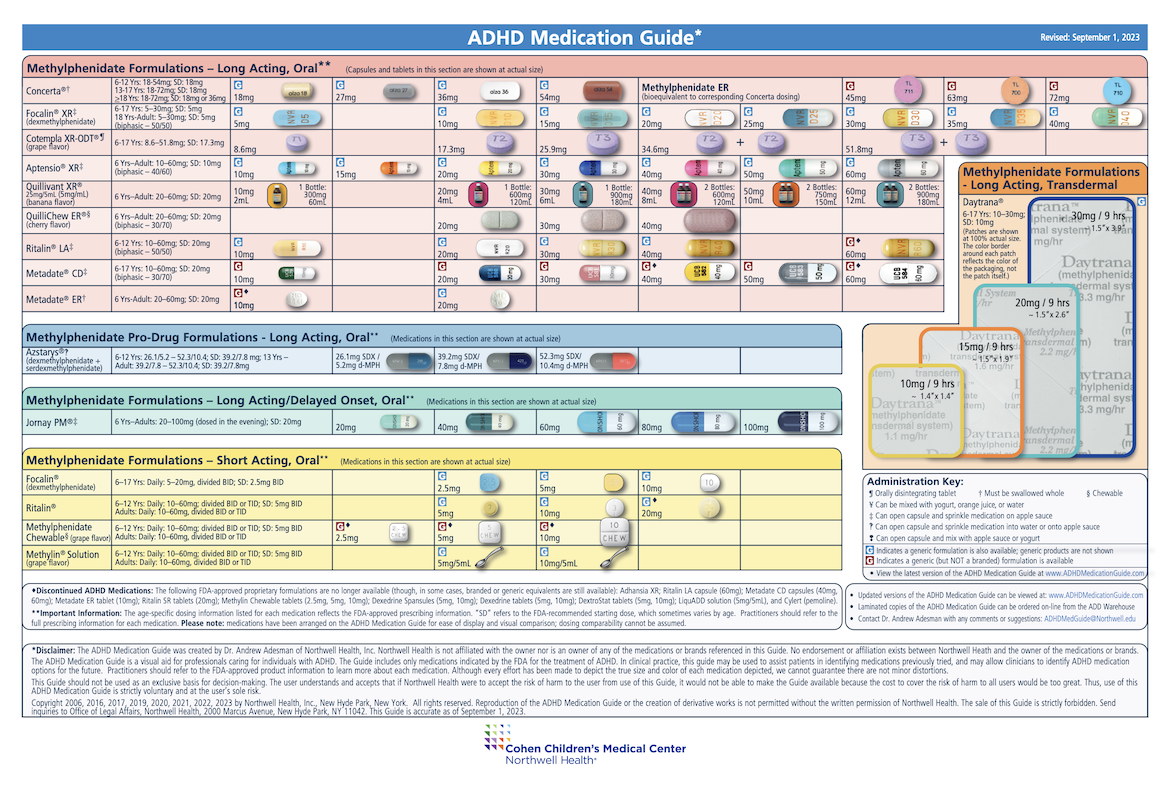Mental Health Services Focused for Your Unique Care Needs
Mental Health Services Focused for Your Unique Care Needs
Blog Article
Discovering Reliable ADHD Treatment Options for All Ages
The intricacies of Focus Deficit Attention Deficit Disorder Disorder (ADHD) existing distinct difficulties throughout various age groups, demanding a detailed exploration of reliable therapy choices. A combination of behavior treatments, pharmacological interventions, and way of living modifications has revealed guarantee in dealing with the diverse requirements of people with ADHD.
Recognizing ADHD and Its Impact
Attention-Deficit/Hyperactivity Condition (ADHD) is a neurodevelopmental condition identified by consistent patterns of inattention, hyperactivity, and impulsivity that can significantly influence numerous aspects of a person's life. It commonly shows up in youth, although signs and symptoms can linger into their adult years. The core signs and symptoms of ADHD can disrupt educational efficiency, hinder social interactions, and make complex work-related undertakings.
People with ADHD commonly deal with maintaining focus on jobs, arranging activities, and following up on instructions, which can bring about scholastic underachievement (Depression Treatment). In social contexts, impulsivity may result in problems in developing and sustaining partnerships, as people may disrupt discussions or make hasty decisions without thinking about effects
Furthermore, ADHD can co-occur with other psychological health conditions, such as stress and anxiety and depression, further complicating medical diagnosis and treatment. The irregularity in symptom presentation suggests that ADHD can impact people in a different way, requiring a personalized method to monitoring. Comprehending ADHD's complex impact is important for establishing efficient methods that support individuals in browsing everyday difficulties and attaining their capacity. Comprehensive recognition of ADHD's nature and implications prepares for exploring ideal treatment options tailored per individual's requirements.
Behavioral Therapies for ADHD
Countless behavioral therapies have actually been developed to properly attend to the difficulties associated with ADHD, concentrating on customizing specific actions and fostering vital skills. Amongst one of the most identified approaches are cognitive-behavioral treatment (CBT), parent training, and social abilities training.
CBT assists individuals recognize and change adverse thought patterns and behaviors, advertising an extra positive expectation and enhanced self-regulation. This treatment typically includes functional techniques for handling impulsivity and boosting company. Parent training programs empower caretakers by outfitting them with methods to strengthen favorable actions and established consistent borders, which can be especially valuable for youngsters with ADHD.
Social abilities training is another vital element, training people with ADHD how to connect effectively with peers - Depression Treatment. This technique commonly includes role-playing and feedback to improve communication, teamwork, and dispute resolution skills
Including these behavior modifications right into a thorough treatment strategy can substantially boost functioning and lifestyle for people with ADHD. Inevitably, the efficiency of these treatments depends on tailored approaches that consider the one-of-a-kind needs of everyone, thereby fostering strength and versatility in every day life.
Drug Options Available
For lots of individuals with ADHD, medicine can play a significant role in handling signs and enhancing overall functioning. The two main classifications of medicines suggested for ADHD are stimulants and non-stimulants.
Energizers, such as methylphenidate and amphetamine-based drugs, are the most typically made use of therapies. These medications function by raising the degrees of natural chemicals, particularly dopamine and norepinephrine, in the mind, which assists improve interest and minimize impulsivity and attention deficit disorder. They often produce fast results, making them a preferred alternative for numerous clients.
:max_bytes(150000):strip_icc()/adhd-treatment-4157278_FINAL-848b0cfc4d0b42a0b66c3d2ca894e9dd.png)
It is crucial for doctor to conduct a detailed analysis to identify the most ideal drug based upon specific requirements, clinical history, and prospective adverse effects. Routine follow-up and monitoring are also essential to ensure the effectiveness of the picked treatment and to make any kind of required modifications.
Way Of Life Changes to Consider
Managing ADHD successfully prolongs beyond drug, as way of life modifications can significantly improve overall well-being and sign control. Integrating organized regimens is vital; regular schedules aid people with ADHD handle their time successfully and decrease feelings of overwhelm.
Regular exercise is one more important component. Workout not just helps to enhance focus but also improves mood and lowers stress degrees. Tasks such as yoga exercise or team sports can be specifically beneficial, promoting both physical conditioning and social interaction.
Nutrition also plays a pivotal role. Depression Treatment. A balanced diet plan rich in omega-3 fats, entire grains, and lean proteins can contribute to enhanced emphasis and cognitive feature. Restricting sugar and processed foods is suggested, as these can exacerbate attention deficit disorder and impulsivity
Rest health is important for managing ADHD signs. Developing a routine rest routine and developing a peaceful atmosphere can boost sleep high quality, causing better interest and psychological regulation.
Different and Alternative Methods
Alternative and all natural techniques to ADHD therapy supply a varied variety of choices that match typical approaches. These methods commonly concentrate on way of life modifications, nutritional interventions, and therapeutic methods that aim to boost general wellness while addressing ADHD signs.

Mindfulness and behavior modifications are additionally getting traction as holistic interventions. Practices such as yoga exercise, meditation, and cognitive-behavioral therapy can grow self-regulation and improve interest. These approaches support emotional resilience, which is especially beneficial for individuals with ADHD.
Organic supplements, such as ginkgo biloba and ginseng, are in some cases discovered; however, it is critical to consult healthcare professionals prior to including these into treatment strategies. While alternative and holistic strategies can supply valuable assistance, they ought to preferably be used combined with evidence-based therapies to accomplish optimal outcomes for taking care of ADHD throughout any ages.
Verdict
In summary, effective ADHD treatment demands a comprehensive technique that includes behavioral therapies, medicine, way of life modifications, and holistic approaches. Tailored treatments can substantially improve people' working and quality of life, while ideal medication guarantees optimal signs and symptom monitoring. Furthermore, taking on structured routines, taking part in routine exercise, and exercising mindfulness can improve psychological guideline and focus. This complex technique highlights the value of customized treatment in dealing with the diverse needs of people with ADHD across any age groups.
Report this page